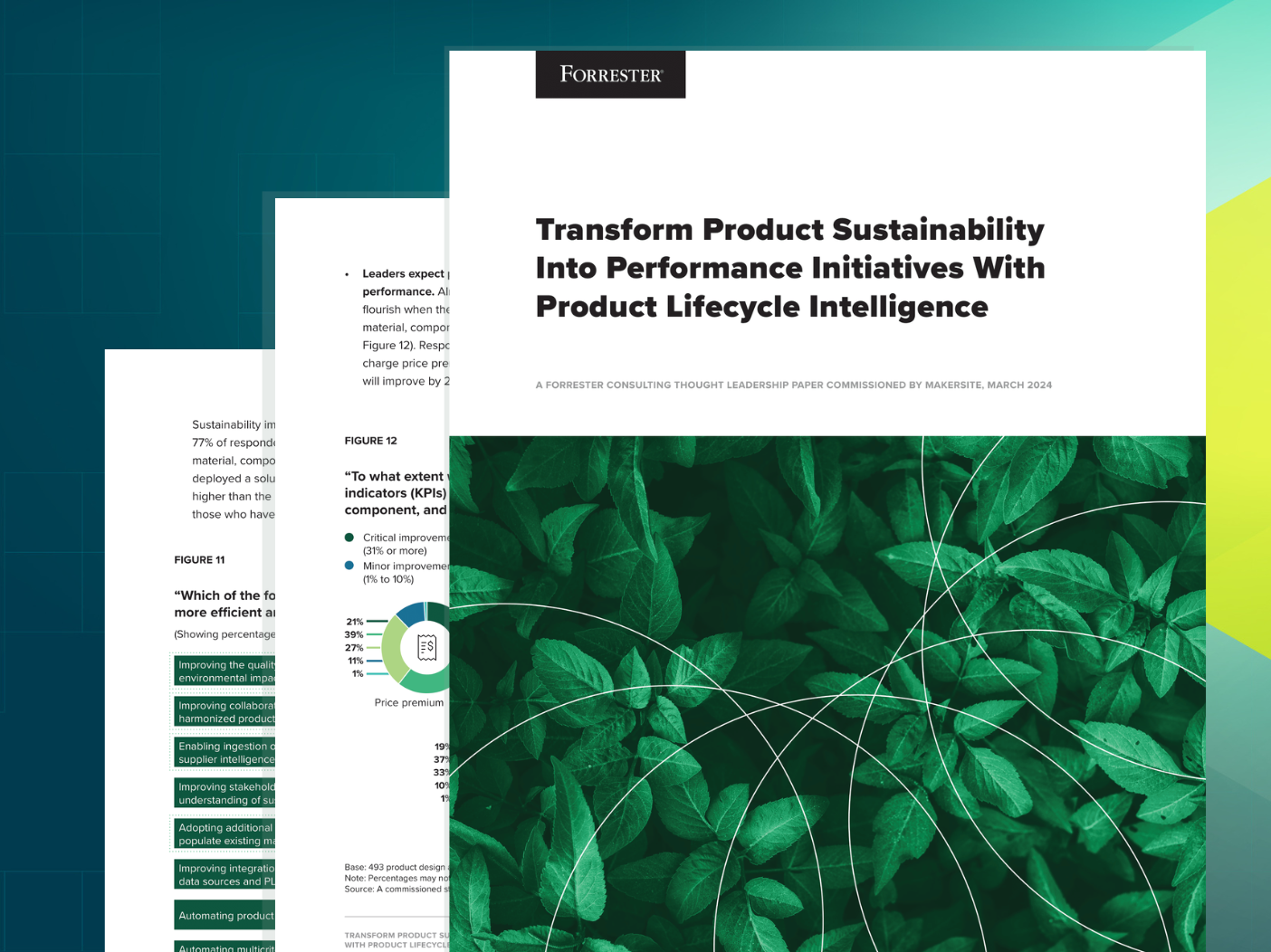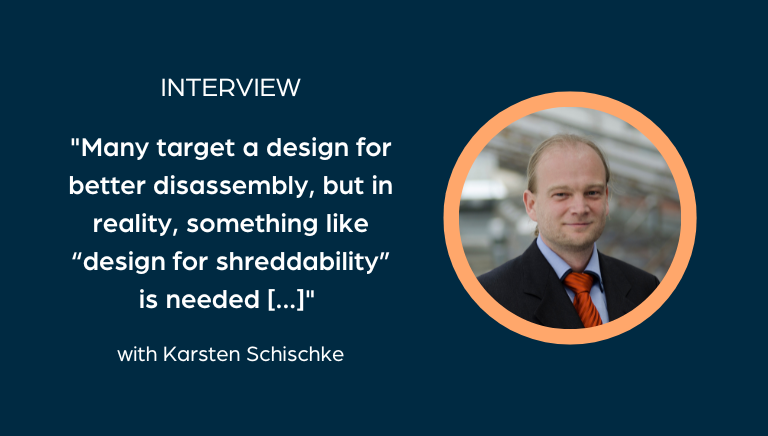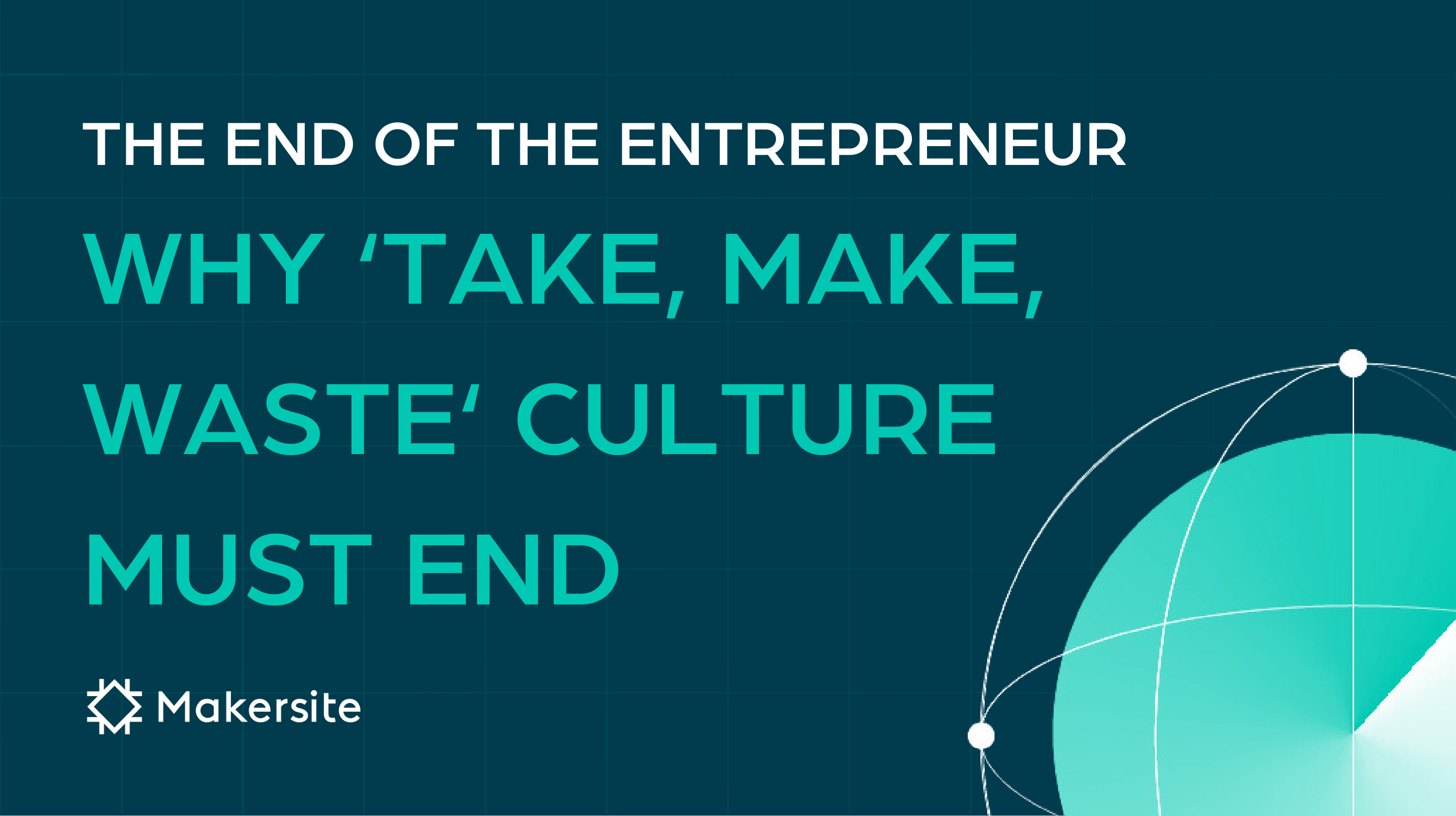Forrester study offers crucial insight into competitive advantages of sustainable product development
The study, which develops a maturity index across 493 respondents, found that advanced organizations who integrate sustainability into their PLM systems see greater success across critical KPIs.
A note from Makersite CEO Neil D’Souza
Makersite is proud to announce the launch of our co-authored study with Forrester, titled “Transform Product Sustainability into Performance Initiatives with Product Lifecycle Intelligence”. Not only is it a pivotal moment in Makersite’s journey and growth as a company, but it is also a confirmation of our vision and a validation of the underlying goals and objectives that serve as the foundation on which our software has been built.
Make it better, not make it faster
As a society, we have reached a critical turning point. More and more companies are producing high-profile, single-use products which, in turn, has created a new normal – a continuing acceptance that increased consumption and rapid wastage is fine. And that doesn’t even consider the fact that some 80% of the ecological impact of a product happens in the design phase alone.
We exist in a place and a time where “take, make and waste” has become the norm. But there is a different future, one based around “make it better” rather than “make it faster.”
In order to make that vision a reality, however, we have to give those leading the charge the right platform to succeed. That is the purpose of Makersite. I see a future where those people who make and manufacture products – our product engineers and product designers – drive strategic transformation underpinned by a shared, compelling vision, financial support based on more than just commercial imperatives, and a dynamic ecosystem that is agile, efficient and geared toward ethical, criteria-driven innovation.
The power of data
Empowered with the right tools and best practices to make better products faster, engineers can provide the solutions needed to collaborate and take the actions that will make a difference. Products can be more sustainable, more efficient and more cost-effective while still making money and ensuring a profitable, healthy business. However, we must give them a foundation to work from first.
If we present engineers with the data they need, they will use it – and use it well. No one wants to make a ‘bad’ product, but ‘good’ products can only be made with the right decisions informed by the right data.
Some may argue that this is wishful thinking or is not worth the effort. However, a Bain & Company study found that while only 40% of businesses are on track to meet their sustainability goals, companies have an increasingly conscious and proactive base of consumers willing to pay 11% more for sustainable products and employees that will help.
A recent IBM report also noted that organizations that embed sustainability in their product design processes experience a 16% higher rate of revenue growth. They’re 52% more likely to outperform their peers on profitability. And they’re two times more likely to attribute great improvement in operating costs to sustainability efforts.
It’s not just blue-sky thinking for a greener future either. The most significant driver for companies to do anything has always been growing revenue. A 2022 report – the Sustainable Market Share Index – by NYU Stern’s Center for Sustainable Business examined what actually happened in the last decade and found that the share of CPG products marketed as being sustainable grew twice as fast as conventional products and accounted for one-third of the total revenue growth in the industry. Customers paid 27% more for those products.
Now is the time
With a massive demographic shift bringing more environmentally conscious buyers into the market already well underway, the time never has been better to build better products. This is what our study with Forrester reiterates. We have seen it and we have talked about it and we have translated ideas into actions with some of our biggest customers – Microsoft, Barco, Cummins, Schaeffler. It is fantastic to see that validated here.
We are amidst an unprecedented revolution that is changing not just the products we make, but how we make them. Companies that are set up for rapid change are becoming the new leaders of tomorrow and we’re already witnessing this evolution. Unfortunately, companies have only a piece of the data needed to make decisions quickly – the internal view. Most of the data needed comes from the world outside – supply chains, costs, regulations, impacts and others. This is the external view. The ability to combine the two instantaneously to drive better decisions and tradeoffs will avoid costly mistakes, shorten time-to-market and create more sustainable and successful products.
Study findings
The study, which includes insights from 493 respondents with product design and sourcing decision-makers in manufacturing, found that the surge in customer expectations alongside stringent regulations is pushing leaders to revolutionize their approaches to product lifecycle management and supply chain operations.
These leaders are increasingly championing sustainability within their organizations. However, they face significant hurdles; they’re often without the backing of upper management to enact meaningful strategic transformation, and they lack the necessary tools to provide access to precise, detailed data on materials, components and suppliers. This scenario underscores a critical juncture for decision-makers in product design and sourcing, urging a radical shift towards integrated, sustainable practices that meet the demands of a dynamic global market.
Ultimately, the study offers compelling evidence for the hypothesis that we have long been promoting as a company: that harmonized access to a breadth of reliable data forms the foundation of efficient product design and sourcing, and that organizations that are able to leverage granular product lifecycle intelligence in product development will enjoy competitive advantage against their peers with a faster time to market and more successful and profitable products.
There is plenty more to uncover in the study itself – from a wealth of new data to in-depth insight on the importance of data quality to a selection of actionable key takeaways that organizations can apply to their own business operations. Take your time to read our findings in full here.
Thanks,
Neil



